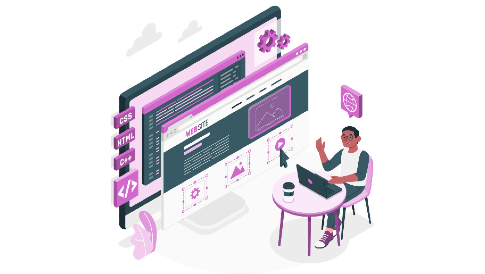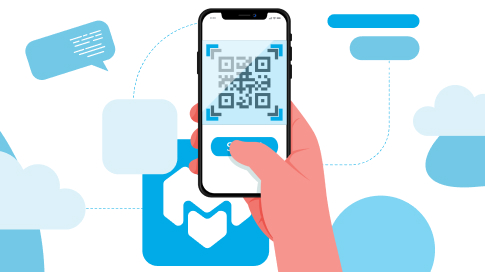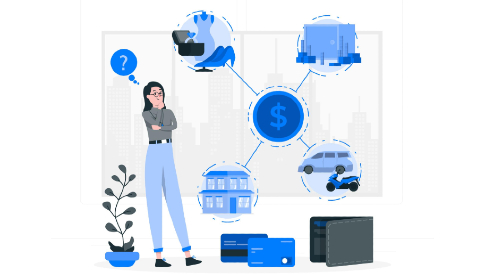7 Reasons to Use Python to Build a Custom Ecommerce Website
If you’re looking to launch an e-commerce business, there are many factors you must consider before making the final leap. These include what technologies would be best to build your site with, how scalable they need to be, and exactly what features they need to include for ease of use by your customers and staff members. One such technology that’s worth considering is Python. Choosing a custom e-commerce website takes a lot of the legwork out of the process because it allows you to build what your business needs. This article will highlight seven reasons why Python should be your language of choice when building a custom eCommerce website you’re fully in control of.
Build a Custom Ecommerce Website – Secure
Python has a built-in mechanism for managing access to modules, packages, classes, and functions of “access controls.” Several possible access control schemes and the option to write your own are available. This allows you to protect what you need to watch while giving more open access where appropriate. Django, one of the popular Python frameworks, creates security boundaries, making coding in this programming language safer than working in plain PHP. It also eliminates the most common Python security blunders developers are guaranteed to make while guarding against cross-site scripting, request forgery, and SQL injection in apps and websites.
Build a Scalable Ecommerce Website
Python scales quite well, with some websites like Pinterest and Instagram using the language to do the heavy lifting for their site’s large user base. This means that if your business starts to grow, Python can help you accommodate a larger audience without sacrificing the speed or performance of your website. There are two ways to go about scaling your project.
Firstly, you can choose to scale the application up vertically. If your website runs slowly, you can upgrade the server’s hardware, storage space, or RAM. This will boost the performance of your site, which is crucial for an e-commerce site due to the large number of page views per day most websites receive. Another way to scale your website is to use more servers horizontally. To do this, you need to distribute the load across multiple servers. You can do this with tools like HAProxy, Nginx, or any other web server that supports reverse proxy functionality.
Beginner-Friendly
Programmers new to Python can learn the basics from plenty of free online resources available today. For example, websites such as Python for Beginners provide many simple-to-digest articles on pretty much everything, including python string, comments, lists, and functions. People interested in writing a custom eCommerce website should consider using a framework like Django because it contains features that make programming more manageable and efficient. It also helps prevent code duplication since the framework’s code can be reused for each new application.
Django is popular because it follows the “Don’t Repeat Yourself” (DRY) principle. This means that if some code can be used somewhere else—outside of an app or model—it should be rather than just copied. One of the goals of building an e-commerce website is to make it appealing to customers. To achieve this goal, you must create a user-friendly interface for customers and easily access product information.
Boasts Excellent Support
Python is easy to read and understand, even without prior knowledge. Apart from that, the Python community is incredibly welcoming and supportive of new developers who want to contribute their efforts to the community. For example, Django has a very active and helpful community of users on Reddit, Facebook, and Stack Overflow. Here, you can easily find answers to your questions on anything from Django installation to deploying and tuning your eCommerce website.
The Python community is also very active in developing new programming language developments, such as Pycon. PyCon is the largest annual gathering for the community that shares information about everything from best practices in Python development to how you can contribute to open-source projects. If you plan to build an eCommerce website, I recommend using Python. The programming language has a vibrant community of developers who can help you when you face business trouble. Plus, it is beginner-friendly and offers excellent support for scalable applications.
Build a Custom Ecommerce Website – Easy to Maintain
This programming language can be modified and enhanced with relative ease. More importantly, Python is a free-to-use language that has been around for over 25 years now. It’s also effortless to learn and use, meaning you can quickly get up and running with it. You will hardly face significant performance issues or bugs with frameworks like Django, making it an ideal choice for an e-commerce project. Besides, you can use Python to build a custom eCommerce website without involving too much Javascript or any other coding framework.
If you need your e-commerce project to serve the best possible performance, Python is the language for you. It’s an open-source platform, which means you are not bound to any restrictions or constraints with the language. Besides, it makes it easy for the developer community to provide support and work on features they feel should be included.
Flexible
You can use Python to build different e-commerce websites with any imaginable functionalities. The language is highly flexible, allowing developers to choose which libraries they will use and their preferred design patterns. This flexibility also enables you to make applications work as needed, another crucial part of running a fast-growing eCommerce website. Since following a specific design pattern is unnecessary, you can write code quickly without needing to research anything because of the language’s built-in templates.
Python’s flexibility is critical for eCommerce applications since there are several different models you will need to consider. For example, if you want to develop an application that can process credit cards quickly on your website, you would use the “Django Payments” library. This popular open-source library makes it easy for developers to accept payments online. And this is just one example of the many things Python makes quick and easy for you!
Build a Custom Ecommerce Website – Fast
The Python language is best known for its fast processing, making it an excellent choice for developing websites like e-commerce sites that need to process a lot of data. Developers can utilize Python MQTT libraries to implement real-time data communication for IoT-enabled ecommerce applications, enhancing product tracking and inventory management. Some of its frameworks, such as Django, are super-fast because they compile into bytecode before running. Moreover, they provide high-level APIs for accessing databases, web services, and cached application data.
With Python, you can use the same features to improve your eCommerce site’s performance and responsiveness. You can also develop an API for faster processing based on specific business needs. Python also offers several frameworks that help developers achieve speed quickly while creating their applications, some of which are listed below:
- Django
- Flask
- Bottle
Build a Custom Ecommerce Website – Conclusion
Python is a highly adaptive language that can help grow your e-commerce business and allow faster and easier production of codes. It is secure, scalable, beginner-friendly, enjoys superb support, and is easy to maintain. For companies looking to enhance their platforms further, exploring specialized Python development services can provide advanced solutions tailored to specific needs. If you’re setting up an online store that you envision will expand quickly, Python should be your go-to programming language. The learning curve will probably be steeper than when using out-of-box solutions such as Shopify. But you will thank yourself down the line for having taken that route—best of luck.




Leave a Reply